Nearly five months after the Operation 1027 of the Three Brotherhood Alliance (3BHA), the Nationwide Ceasefire – Signatory – Ethnic Armed Organizations (NCA-S- EAO) convened a three-day summit meeting in Chiang Mai, Thailand.
Reportedly, the meeting will be held for three days. The NCA-S EAO Summit of the seven ethnic armed groups that continue to adhere to the NCA will discuss political proposals and draft constitution for a new form of grouping, among others.
“Politics and military situation are changing every day, and some of our seven-group members have been fighting (the military junta). These points highlight the current situation and a very sensitive situation,” said Restoration Council of Shan State (RCSS) Chairman General Yawd Serk in his opening speech.
“Currently, the political framework is narrow and the military framework is wide. Our seven groups will adhere to the federal principle, which is accepted by the 12 EAOs and will continue to march forward. We have to start governing the various areas under our control with our self-administrative system, (according to) the rights of self-determination,” added General Yawd Serk.
“In each of the control areas of the seven groups, they must start governing with their own administrative system, according to the rights of self-determination. Administration, security, economy, education, healthcare, livelihood, including other services, for the people in their areas will have to be carried out. Federal democratic union will have to be established stage by stage. On the other hand, our seven groups will have to adhere to the norms of working together where we have common outlook and work separately where we don’t have them,” according to the opening speech of General Yawd Serk.
Restoration Council of Shan State (RCSS), Pa-Oh National Liberation League (PNLO), Arakan State Liberation Party (ALP), Karen National Union/Karen National Liberation Army (KNU/KNLA) Peace Council, Lahu Democratic Union (LDU), including the Democratic Karen Army (DKBA) and the New Mon State Party (NMSP), and former KNU Chairman Saw Mu Tu Say Poe are also attending the recent ongoing meeting in Chiang Mai.
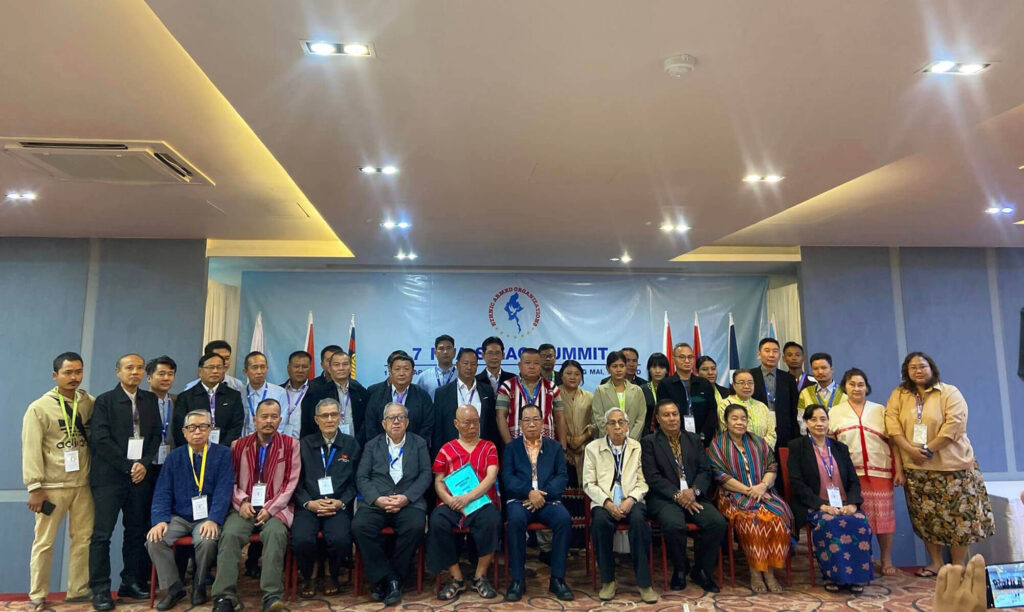
It should be clarified that (KNU/KNLA) Peace Council is a break away organization from KNU/KNLA mother organization which has several hundred troops. It has nothing to do with the original, mother organization. It is also not clear whether the former KNU Chairman Saw Mu Tu Say Poe is at the meeting as an official representative of the KNU or not, as he is retired and not in tune with the present KNU leadership, which is actively fighting the military junta.
Apart from that, three of the original 10 NCA-S-EAO, Chin National Front (CNF), and KNU have all opted out of the group and are now in actively fighting with the military junta.
The speculation is that the remaining seven NCA-S-EAO need to do something on the face of the 3BHA onslaught against the military junta and tremendously gaining territories and economic privilege, through Haigeng Agreement during the third meeting, brokered by China in Kunming, between the junta and the 3BHA, according to various news outlets.
“In a Chinese- and Kachin-language statement yesterday, the Three Brotherhood Alliance (3BHA, or Northern Alliance) of resistance groups stated that following a round of China-brokered talks in Kunming, the two sides had agreed to pull their troops back from the frontlines and to ensure that “China’s interests in Myanmar are not harmed,”” writes The Diplomat on March 4, 2024.
Reportedly, in the aftermath of the late October, Operation 1027 launched by the 3BHA, Myanmar National Democratic Alliance Army (MNDAA) and Ta’ang National Liberation Army (TNLA) forces seize towns, military outposts, and important border crossings with China.
The unpublicized but widely spread agreement of March 3, 2024, between the junta and 3BHA are:
- Recognition of the MNDAA as an official government for Special Region 1 or Kokang;
- Arakan Army (AA), TNLA, MNDAA seized towns to be recognized by the military junta;
- Both sides’ troops to stop advancing from agreed designated areas and to keep distance with each other;
- AA, TNLA, MNDAA to refrain from causing damage to China’s economic interests and protect them;
- Military junta to post custom, merchandise control, immigration officials and Kokang (MNDAA) to act likewise, as joint-undertaking;
- Taxation of goods going through Chinshwehaw Gate will be allotted 70 percent to Kokang government on behalf of the 3BHA, while the military junta will be given 30 percent.
However, to these days the junta and 3BHA haven’t confirmed or denied the said unpublicized agreement.
Furthermore, according to The Diplomat report: “The two sides have not yet agreed on how to divide up the revenue from the Muse-Ruili border crossing, which handles the lion’s share of the China-Myanmar border trade. Muse remains under military control, but surrounded by TNLA forces. According to the agreement, “there are still many clauses and details for specific implementation that need to be negotiated and resolved in the fifth round of negotiations in April.””
The report moreover pointed out that both the 3BHA and the Myanmar military have good reasons to play ball, as no party can afford to alienate China or ignore its wishes, and both need time to consolidate their respective positions.
Perspectives
The recent meeting is believed to be aimed at reinventing the NCA-S-EAO to be in par with the 3BHA, where territorial and economic claims are concerned. In other words, they don’t want to be left out empty-handed in the emerging new political configuration and just play a junior partner or second fiddle to the military junta, hoping for handouts only.
By rolling out their administrative structure and implementing it, they probably hope to become the master of their own fate and even benefiting from cross-border trade, for example such as the EAOs which share border with Thailand, like the way the 3BHA is benefiting from China-Myanmar border trade. Apart from that the planned humanitarian aid corridor from Thailand for the refugees and IDPs in Karen State could expand to other border-crossings in Karenni and Shan states, and may also have to seek official engagement with them, in order to be effective. In the past, such arrangement have always bypassed the EAOs, with international actors dealing directly with the military junta only.
But now the humanitarian aid intervention may take a different approach, if far-reaching impact is to be achieved according to analysts, writes BenarNews on 28 February, 2024.
“If Thailand truly aims to help Myanmar citizens, it is crucial to talk with all parties involved, including ethnic armed forces and the entire civil society, not just leave everything to the Myanmar Red Cross,” Lalita Hanwong, a Southeast Asian history lecturer at Kasetsart University, told BenarNews.
Thailand must do more than provide short-term assistance along the border if it wants to find a durable solution to Myanmar’s conflict, said Lalita, who also serves as an advisor to the Thai government on national security issues.
In addition, the NCA signatories can also claim to be doing the right thing arguing that they are undertaking a bottom-up federalism as constituent units in form of self-administration and self-governance, which will become part of the federal democratic union at a later stage.
The Karenni, Chin, Karen, Arakan revolutionary groups are all actively building self-governance and self-administrative systems with the same bottom up federalism argument, while waiting for the emergence of a central federal authority to be worked out by all stakeholders.
This may not go down well for the present military junta. But what choice or alternative does it have to offer, when it is engulfed with nationwide resistance, losing large swath of territories to the opposition groups, with multitude of woes and its legitimacy to rule being questioned.
For now, the NCA signatories may not be joining the civil war fray, with gun blazing. However, it seems their reinvention is not solely hoping for handouts from the military junta through peace negotiation, but applying a certain pressure by starting to take things into their own hands, so that they won’t be left out when political bargaining take place eventually.
Its a self-assertiveness by all means. But whether it will benefit the group and the population at large are questions that only time can answer.
Meanwhile, on the second day of the NCA signatory EAOs’ meeting, a statement was issued. The statement said that the former Peace Process Steering Team (PPST) will be replaced with the new name “7 EAO Alliance”. It emphasized that the newly set-up group will strive for all-inclusive peace process participation of stakeholders to find ways for peaceful political dialogue, which should be continued at length without stopping. Moreover, it also stressed the importance of civilian protection and security by all parties involved in the armed conflict.





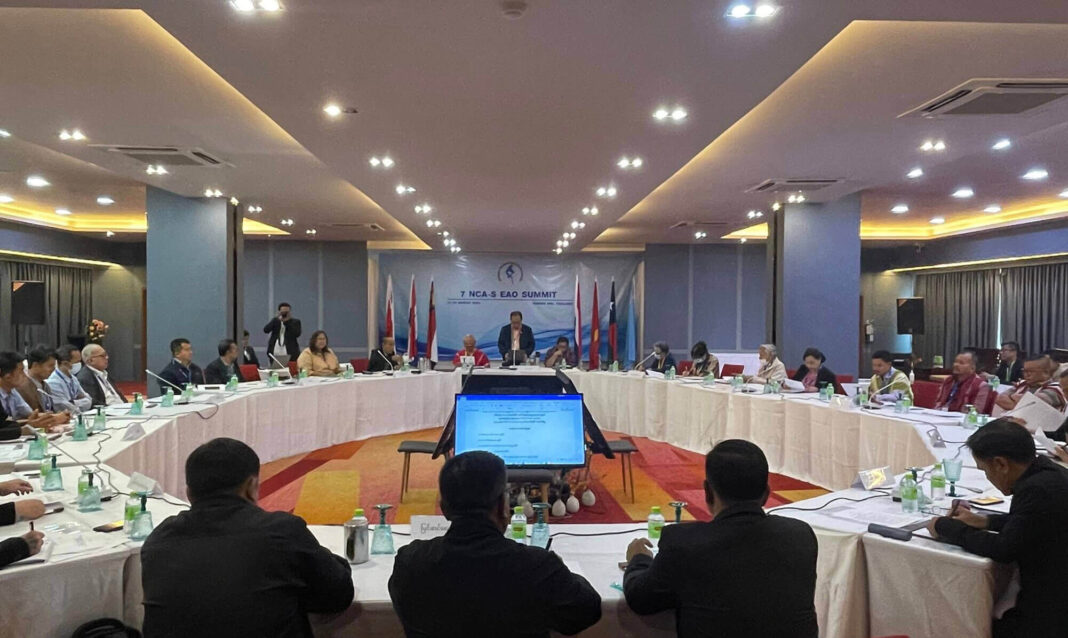
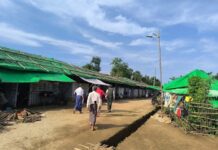
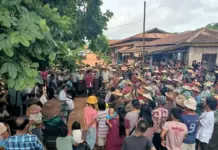
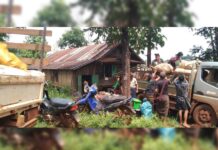
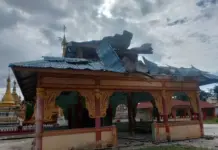
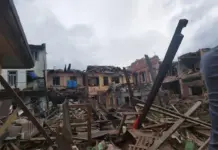






Leave a Comments